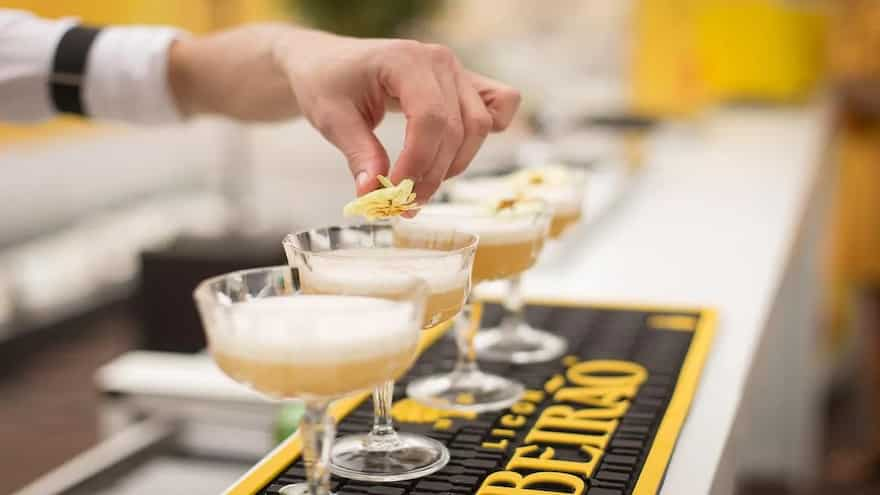Making homemade syrup is a simple process that requires just a few basic ingredients. The base of any syrup is sugar and water, which are combined and heated until the sugar has dissolved. You can flavor your syrup with just about any herb or fruit. Some popular choices include vanilla, cinnamon, mint, and berries.
One of the benefits of making your own syrup is the ability to customize the sweetness and strength of flavor to your liking. Store-bought syrups can often be overly sweet, but by making your own, you can adjust the ratio of sugar to water to achieve the desired level of sweetness.
Another advantage of homemade syrups is the ability to incorporate unique and creative flavor combinations. For example, try mixing fresh ginger and turmeric for a spicy kick or infusing your syrup with Earl Gray tea for a subtle hint of bergamot. The possibilities are truly endless!

To get started, all you need is a saucepan, a measuring cup, and a whisk. In a saucepan, combine equal parts sugar and water and heat the mixture over medium heat. Stir until the sugar has dissolved, then add in any flavorings or herbs you wish to use. Let the syrup simmer for a few minutes to allow the flavors to infuse, then take it off the heat and let it cool. Strain the syrup once it is at room temperature, using a fine-mesh sieve to remove any solids, and transfer it to an airtight container for storage.
You can also experiment with more traditional styles. Cheong is an ancient Korean syrup that has been gaining popularity in the last few years as an alternative to commercial syrups such as maple or treacle. Cheong can be made with almost any fruit or vegetable. To make your own cheong, fill a clean jar with a 1:1 ratio of fruit and white sugar and store it in a cool, dry place for at least 100 days. The moisture in the fruit is drawn out into the sugar over time, making for a unique syrup that is more representative of the raw taste of the fruit or vegetable used for the preparation, which is often lost during the heating process that regular syrups necessitate. More watery fruit, such as citrus, is best made with a higher ratio of sugar, at least two parts to the weight of the fruit. Traditional Korean cheong is made using green plums, radish, and peaches, among others. Most syrups benefit from being mixed every two days until the sugar has completely dissolved in order to allow for a more uniform extraction. The mixture may be allowed to run for up to a year at room temperature.
Bar culture has also popularized the use of more unconventional syrups over the last few decades. There is no better example of this phenomenon than orgeat syrup, an almond-based syrup that is a staple of tiki culture. Making your own orgeat syrup at home is a simple process that can be accomplished in a few simple steps. To start, blanch the almonds by soaking them in hot water for a few minutes and quickly immersing them in an ice bath to help remove the skins. Next, grind the almonds into a fine powder using a food processor. Combine the ground almonds, sugar, and orange flower water in a pot with enough water to cover the ingredients.
Heat the mixture over medium heat, stirring occasionally, until the sugar has dissolved. Bring the mixture to a simmer and cook for about 10–15 minutes, or until the liquid thickens. Take the mixture off the heat soon after and let it cool. Strain the mixture through a fine-mesh strainer to remove any solid pieces of almond. Finally, bottle the syrup and store it in the refrigerator for up to 2 weeks.
It's worth noting that the proportions of ingredients can be adjusted to suit individual preferences. You can also experiment with different spices like cinnamon, cardamom, and vanilla to give the syrup a more nuanced flavor. You may also use rose water or any other floral water in place of orange flower water, should it prove hard to come by.
Homemade syrups can be stored in the refrigerator for up to a month, making them the perfect ingredient to have on hand for your next cocktail party. So next time you're mixing up a drink, don't be afraid to think outside the bottle and experiment with your own homemade syrups. You never know, you might just discover the next big mixological marvel!


